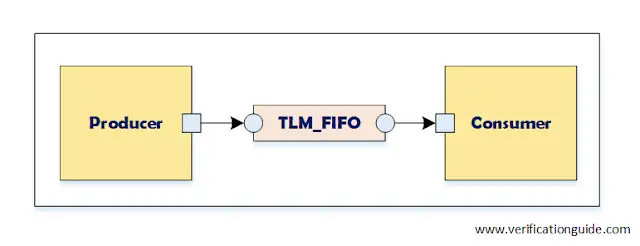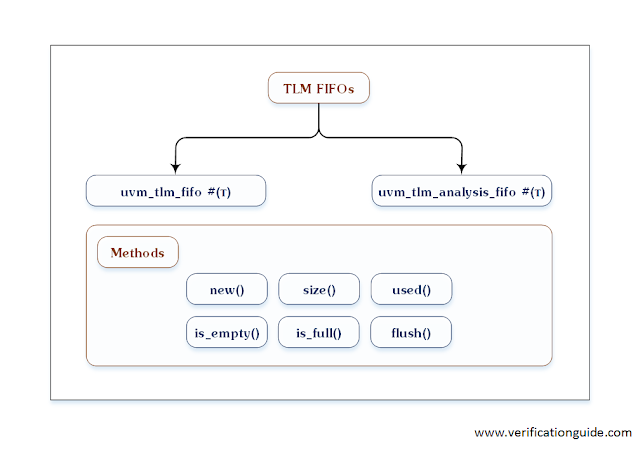UVM TLM FIFO
Table of Contents
The TLM FIFO provides storage for the transactions between two independently running processes. We have seen put and get methods operates with only one outstanding transaction at a time i.e it is allowed to send the transaction Only after consumption of the previously sent transaction, in this case, the sender and receiver must be in sync else lead to blocking in one of the components.
What if the case where the sender needs not wait for the receiver acknowledgment, it just wants to store it in memory and the receiver can consume whenever required. in this sender and The receiver needs not to be in sync. Yes With TLM FIFO it is possible.

- In TLM FIFO, the sender pushes the transactions to FIFO and whenever it required reiver pops it out or fetches from the FIFO
- Transactions are put into the FIFO via the put_export method
- Transactions are fetched from the FIFO via the get_peek_export method
- As its FIFO (First In First Out), transactions are fetched from the FIFO in the order they are put
TLM FIFO Classes
uvm_tlm_fifo #(T) |
This class provides storage of transactions between two independently running processes
TLM FIFO Methods
new
This is a constructor method used for the creation of TLM FIFO
function new (string name, uvm_component parent, int size=1); |
The name and parent are the normal uvm_component constructor arguments
The size indicates the maximum size of the FIFO; a value of zero indicates no upper bound
size
Calling size() returns the size of the FIFO
A return value of 0 indicates the FIFO capacity has no limit
used
Returns the number of entries put into the FIFO
is_empty
Returns 1 when there are no entries in the FIFO, 0 otherwise
is_full
Returns 1 when the number of entries in the FIFO is equal to its size, 0 otherwise
flush
Calling flush method will Remove all entries from the FIFO
after the flush method call used method returns 0 and the is_empty method returns 1
Summary of TLM FIFOs

Next Section: TLM Analysis FIFO
For TLM Examples refer to TLM Examples
❮ Previous Next ❯